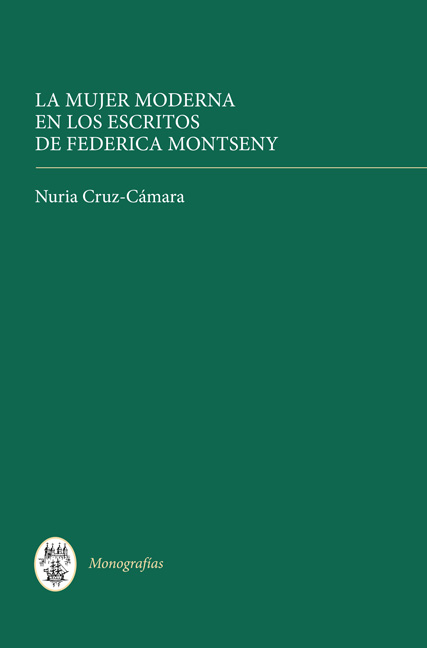Book contents
7 - Las mujeres en la revolución
Published online by Cambridge University Press: 05 December 2015
Summary
hombre público. m. El que tiene presencia e influjo
en la vida social.
mujer perdida, o mujer pública. f. Prostituta.
Real Academia EspañolaA woman outside of her home loses her greatest luster,
and, despoiled of her real ornaments, she displays
herself indecently…. Whatever she may do, one feels
that in public she is not in her place.
Jean-Jacques RousseauRevolution was like the unruly woman: It threatened
to turn the social order on its head.
Gay L. GullicksonThe royal captives … were slowly moved along,
amidst the horrid yells, the shrilling screams, and
frantic dances … and all the unutterable abominations
of the furies of hell, in the abused shape of the vilest of
women.
Edmund BurkeA lo largo de su vida, Federica Montseny reivindicó con orgullo a las mujeres que de un modo u otro habían tomado un papel activo en la lucha por la consecución de la anarquía y, una vez inmersa en el ambiente prerrevolucionario de la Segunda República, adoptó una clara postura a favor de su intervención en la lucha armada. La representación de las revolucionarias merece especial atención porque toca de lleno la cuestión de la diferencia sexual, ya que puede argüirse que la participación en el terreno bélico constituye la forma más visible de “masculinización” de las mujeres. El campo de batalla, observa Angela K. Smith, “presents the ultimate location for ‘being a man’” (Introduction 2), y la conveniencia o no de que las mujeres participen en él es una cuestión que todavía levanta polémica en nuestros días. A pesar de sus ideas sobre los “riesgos” de virilización que, supuestamente, corría el tipo garçonne de mujer moderna, Montseny no censura la ocupación femenina de este espacio quintaesencia de lo masculino, sino que, por el contrario, exalta a las que se unen a las insurrecciones revolucionarias.
- Type
- Chapter
- Information
- La mujer moderna en los escritos de Federica Montseny , pp. 151 - 166Publisher: Boydell & BrewerPrint publication year: 2015



